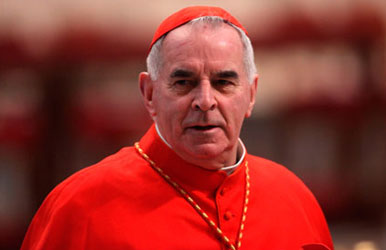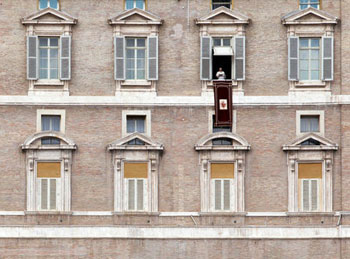Pope Benedict XVI has issued a decree today which allows to bringing forward the Conclave to determine his successor. According to the rules of 1996, the conclave had actually to begin between March 15 and 20.
With this Decree (motu proprio), the Pope grants the Cardinals to bring forward the start of the conclave, as soon as all papal electors have arrived in Rome, said Vatican spokesman Father Federico Lombardi. Recently there had been speculations over an earlier meeting of the Conclave, after several cardinals had apparently voted for it.
The bringing forward of the Conclave, to the first half of March, will allow Benedict’s successor to better prepare for the Holy Week starting on March 24, and Easter which is on on March 31. There had been speculations in Rome now for days about a conclave beginning on the 10th or 11th of March. The date of the beginning of the Conclave is expected to be announced by end of Benedict’s pontificate.
Benedict XVI. announced his resignation for the upcoming Thursday – February 28. The rules which had been defined by Benedict’s predecessor John Paul II. in the Apostolic Constitution “Universi Dominici Gregis” in 1996, provided that the conclave has to start between 15 and 20 days after the Holy See has become vacant. The timeframe should allow the Cardinals from around the world to go to Rome. This time however, numerous Cardinals have already gathered in the Vatican to bid farewell to Benedict.
Lombardi had recently declared, the rules for the meeting of the conclave were designed for the case that a pope dies. With the resignation of Benedict XVI., the situation is different, and “it is possible to interpret the rules differently”. It is crucial that all Cardinals are gathered, and with the resignation announcement they had more time to do so.
The 117 Cardinals eligible to vote, which may not be older than 80 years, will hold their Conclave in secret sessions in the Sistine Chapel. According to current knowledge, two eligible Cardinals will not participate in any way in the election – Cardinal Julius Riyadi Darmaatmadja from Indonesia and the retired Scottish Cardinal O’Brien.



